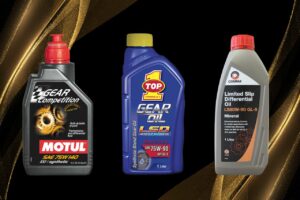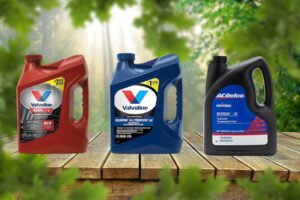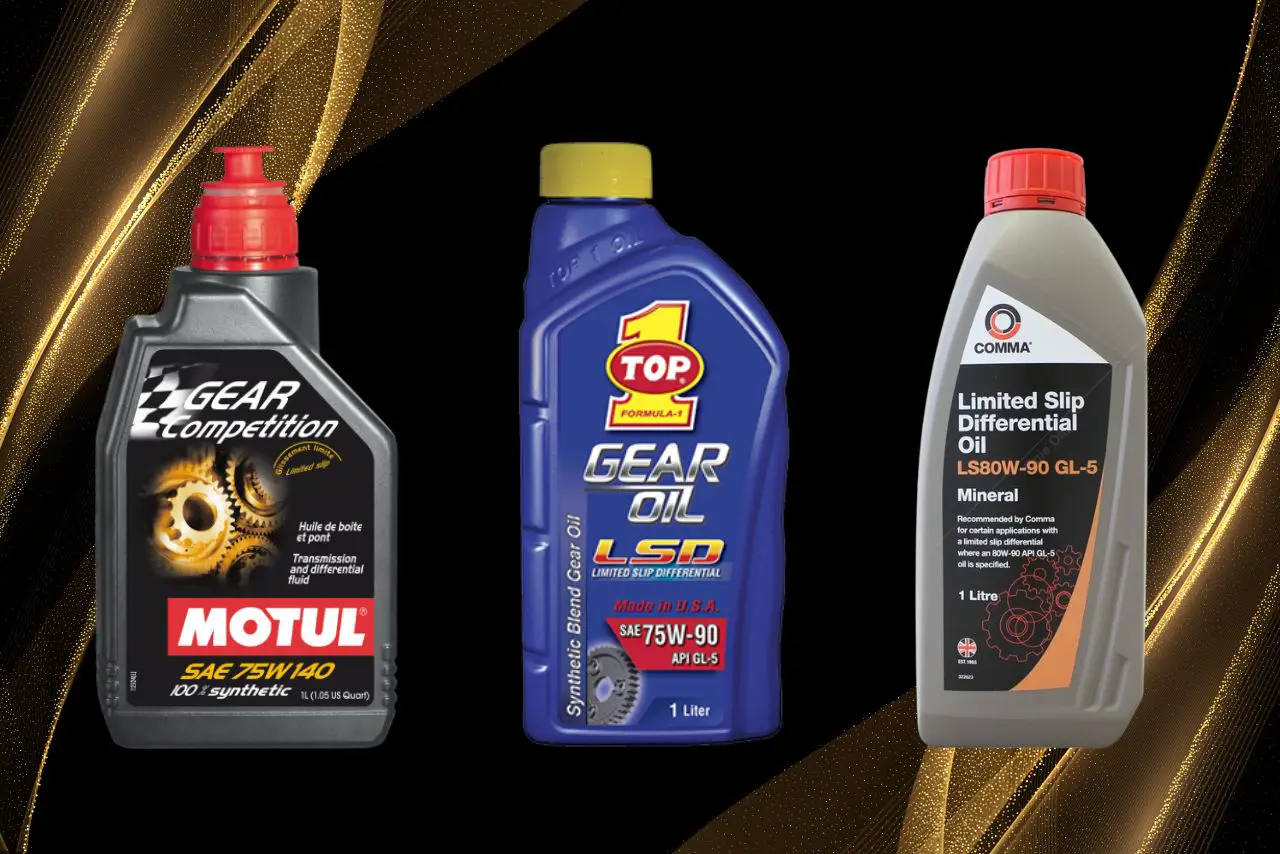Are you tired of wondering whether you can use 5w30 instead of 5w20 motor oil in your car? Understanding the differences between these two viscosity ratings can help you make an informed decision about which one to choose.
While they may seem similar, there are important distinctions that can affect your car’s performance and longevity.
Using 5W-30 instead of 5W-20 oil can work in many vehicles, but it’s essential to consider your engine’s needs. 5W-20 is thinner and can provide better fuel efficiency, while 5W-30 is slightly thicker and might offer more engine protection in high-heat conditions. Using 5w30 will encounter more resistance.
Table of contents
Understanding Motor Oil Viscosity Ratings:
You might think 5w30 is just as good as 5w20, but understanding motor oil viscosity ratings is crucial if you want to keep your engine running smoothly and avoid costly repairs.
Viscosity is important because it determines how well the oil will flow through your engine under different temperature conditions.
The first number (5w) represents the oil’s viscosity in cold temperatures, while the second number (20 or 30) represents its viscosity in hot temperatures.
The importance of viscosity and temperature cannot be overstated. If the oil is too thick, it may not flow well enough to protect the engine during cold starts.
On the other hand, if the oil is too thin, it may not provide sufficient protection when the engine is operating at high temperatures. This is why it’s essential to use the oil viscosity recommended by your vehicle’s manufacturer.
The impact on engine performance is significant. Using the wrong viscosity oil can cause excess wear and tear on your engine, leading to costly repairs down the road.
It can also affect fuel economy and emissions, as the engine may not be running as efficiently as it should.
So, while it may seem like a small detail, choosing the correct oil viscosity is a critical component of maintaining your engine’s overall health and performance.
What is 5w20 Motor Oil?


Did you know that 5w20 motor oil is a type of oil commonly used in modern engines? It is a thin, lightweight oil that helps improve fuel economy and reduce engine wear.
The “5w”in the name refers to the oil’s winter weight, meaning it has a low viscosity when cold, making it easier to start the engine in cold temperatures.
Using 5w20 motor oil can have its pros and cons. On the positive side, it can help improve engine performance and fuel economy. The thin oil flows easily through the engine, reducing friction and wear on engine parts.
It can also help reduce emissions by allowing the engine to run more efficiently. However, some argue that the low viscosity of 5w20 oil can lead to decreased protection for the engine, especially in high heat or load situations.
To determine if 5w20 motor oil is right for your engine, it’s important to check your vehicle’s owner manual for the recommended oil viscosity. Using the wrong oil can lead to decreased engine performance and even engine damage.
If 5w20 is recommended for your engine, using a high-quality oil and following the manufacturer’s recommended oil change interval can help ensure optimal engine performance and longevity.
What is 5w30 Motor Oil?


If you’re wondering about 5w30 motor oil, it’s a common viscosity grade that’s suitable for a wide range of vehicles.
It’s recommended for use in hotter climates and for those who frequently drive at high speeds or tow heavy loads. The benefits of using 5w30 include better fuel economy, improved engine performance, and reduced engine wear.
However, one potential drawback is that it may not provide adequate protection in extreme cold temperatures.
Recommended Applications:
When considering recommended applications, it’s important to note that using 5w30 instead of 5w20 may not be suitable for all vehicles.
While 5w30 motor oil can offer better protection for certain engines and driving conditions, it may not be the best choice for vehicles that require 5w20 oil.
This is because alternative oils can affect engine performance and fuel efficiency, as well as potentially voiding the vehicle’s warranty.
When determining which motor oil to use, it’s crucial to consult your vehicle’s owner manual or speak with a trusted mechanic.
They can provide guidance on the best oil for your specific make and model, taking into account factors such as the engine design, driving conditions, and climate.
By following the manufacturer’s recommendations, you can ensure that your vehicle will perform optimally and enjoy a long, healthy lifespan.
Benefits and Drawbacks:
One thing to consider when choosing a motor oil is the benefits and drawbacks it offers. Using 5W30 instead of 5W20 may have its pros and cons. Here are some things to keep in mind:
What we like
- Better viscosity at high temperatures, leading to improved engine performance in hot weather conditions.
- Increased fuel efficiency due to reduced viscosity, resulting in less resistance in the engine.
- Higher oil pressure, reducing the risk of engine damage and increasing the lifespan of engine components.
What we don’t like
- Reduced fuel economy during cold weather due to increased viscosity, which can lead to sluggish engine performance.
- Increased oil consumption, as 5W30 is thinner, leading to more oil being burned off during engine operation.
- May not meet the manufacturer’s recommended specifications, which can result in warranty issues and decreased engine performance.
Using 5W30 instead of 5W20 may have some benefits for engine performance, but it also comes with its own set of drawbacks.
It is important to consider the manufacturer’s recommended specifications and the climate and driving conditions in which the vehicle will be used before making a decision.
Ultimately, choosing the right motor oil can help ensure optimal engine performance, fuel efficiency, and longevity.
Can You Use 5w30 Instead of 5w20?
Using 5w30 instead of 5w20 may seem like a small change, but it can have significant consequences on your engine’s performance.
While 5w30 might be required for some vehicles, using it instead of 5w20 can lead to decreased fuel efficiency and increased engine wear. This is because 5w30 is a thicker oil that takes more energy to pump, resulting in lower fuel economy.
On the other hand, using 5w30 can have some benefits. It can provide better protection for your engine in extreme temperatures and high mileage vehicles. 5w30 is better suited for hot weather, where it maintains its viscosity better than 5w20. Additionally, it can help prevent engine deposits and sludge buildup, resulting in a cleaner engine.
Ultimately, whether or not you should use 5w30 instead of 5w20 depends on your vehicle and driving habits. It’s important to consult your owner’s manual and stick with the recommended oil viscosity.
Using the wrong oil can lead to engine damage and void your warranty.
However, in some cases, using 5w30 may be acceptable, such as in high mileage vehicles or extreme weather conditions. Always consider the pros and cons before making a decision.
When Might Using 5w30 be Beneficial?
If you have a high mileage engine or live in a hot climate, using 5w30 instead of 5w20 may be beneficial.
The slightly thicker viscosity of 5w30 can help protect older engines with worn parts and provide better lubrication in high temperature environments.
High Mileage Engines:
For those of you with high mileage engines, it’s important to consider the pros and cons of using 5w30 instead of 5w20.
High mileage engines typically have more wear and tear, which can lead to increased oil consumption and decreased performance.
Using a thicker oil like 5w30 can help to provide better protection for your engine, especially if you frequently drive in hot temperatures or have a more aggressive driving style.
However, it’s important to note that there are some potential drawbacks to using a thicker oil.
For example, 5w30 may not flow as easily through your engine as 5w20, which can lead to increased fuel consumption and decreased fuel efficiency.
Additionally, 5w30 may not be recommended by your vehicle manufacturer, which could potentially void your warranty.
Hot Climates:
Yes, in hot climates, you can use 5W-30 instead of 5W-20 oil. The thicker 5W-30 oil provides better engine protection against heat, which can be beneficial in such conditions.
First, it’s important to note that the numbers in the oil’s label, such as 5w20 or 5w30, refer to the oil’s viscosity or thickness at different temperatures.
In hot climates, using a thicker oil like 5w30 can provide better engine protection as it doesn’t thin out as much under high temperatures.
However, this can also have negative effects on fuel efficiency and engine performance, as thicker oil can create more resistance in the engine and cause it to work harder.
So while using 5w30 may be beneficial in terms of engine protection, it’s important to weigh the potential trade-offs when it comes to fuel efficiency and performance.
When Should You Stick to 5w20?
However, it is important to stick to 5w20 if your vehicle manufacturer recommends it to ensure optimal performance and longevity of your engine.
While using 5w30 instead of 5w20 may not seem like a big deal, it can actually have negative effects on your engine in certain circumstances.
Here are three situations where it’s best to stick to 5w20:
Frequently Asked Questions:
What are the potential consequences of using 5w30 instead of 5w20?
Using 5W30 instead of 5W20 may cause increased engine wear due to the higher viscosity.
An oil viscosity comparison and engine wear analysis show that using the recommended oil is crucial for optimal engine performance and longevity. Stick to the manufacturer’s recommendation for best results.
Is it safe to mix 5w20 and 5w30 motor oils?
Mixing oils of different weights, such as 5w20 and 5w30, can affect engine performance.
The viscosity and additives may not be compatible, causing damage. It’s best to stick to one weight and brand recommended by the manufacturer for optimal engine function.
Can using 5w30 instead of 5w20 affect my vehicle’s fuel efficiency?
Using 5w30 instead of 5w20 can negatively impact fuel efficiency due to its higher viscosity.
Engine performance comparison shows that 5w20 is recommended for most vehicles to optimize fuel economy. Stick to the manufacturer’s recommendation for best results.
Are there any specific vehicle models or manufacturers that require the use of 5w20 over 5w30?
Manufacturer recommendations vary, but many specify 5w20 for improved fuel economy.
Synthetic vs conventional oils can also impact performance. Always follow your vehicle’s manual to ensure proper lubrication and avoid potential engine damage. Stay informed and confident in your choices.
How often should I change my oil if I use 5w30 instead of 5w20?
For optimal engine performance, stick to your manufacturer’s recommended oil viscosity.
If you use 5w30 instead of 5w20, you may need to change your oil more frequently to maintain peak performance. Keep an eye on your oil change frequency.
Conclusion and final thoughts 💭
Understanding the different motor oil viscosity ratings is crucial when it comes to maintaining your vehicle’s engine.
While both 5w20 and 5w30 motor oils are popular options, they have different properties and are designed for specific purposes.
If your vehicle manufacturer recommends using 5w20 motor oil, it’s best to stick to this recommendation.
However, if you find yourself in a situation where you need to use 5w30 motor oil, it’s generally safe to do so.
Just keep in mind that using a thicker motor oil than recommended could potentially affect your engine’s performance and fuel efficiency.
Ultimately, the best choice of motor oil depends on your specific vehicle and driving conditions. Consult your owner’s manual or a trusted mechanic for guidance on which motor oil viscosity rating is right for you.
With proper maintenance, you can help ensure the longevity and reliability of your vehicle’s engine.
Latest Posts:
- 10 Best Gear Oil for Limited Slip Differentials (Reviewed!)
- Allison 1000 Transmission Fluid Type (5 Best Options!)
- 91 Octane Vs 93 Which One You Use? (The Surprising Truth!)
- Oil Pressure Gauge Not Working: (Guaranteed Fix!)
- 10 Best Transmission Fluid for 4l60e (Tested by Experts!)
- 10 Best Ceramic Coating For Wheels (Used By Real Users!)












Leave a Reply